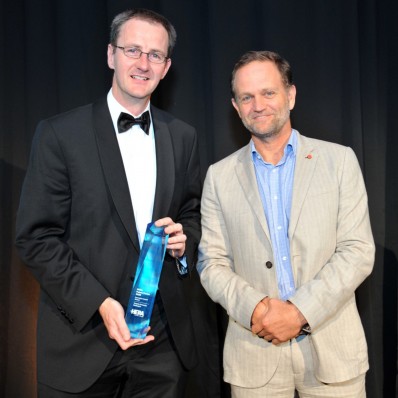Hydrogen-steelmaking research wins Innovation Award
6 March, 2020
Dr Chris Bumby, Principal Scientist, Robinson Research Institute, has received the HERA 2020 Innovation Award, in recognition of his work towards developing a hydrogen-ironmaking process. This novel process has the potential to eliminate carbon dioxide emissions from New Zealand’s steel industry.
The HERA 2020 Innovation Award is presented by HERA (Heavy Engineering Research Association).

Iron and steel are key materials in the modern economy, essential to the construction of pipelines, power-lines and transport infrastructure, as well as earthquake-resilient buildings. However, iron and steel manufacturing is a highly carbon-intensive process, which relies on a chemical reaction between carbon (coal) and oxygen from the iron ore, to form carbon dioxide gas as a product. This process, which has underpinned the iron and steelmaking process since the beginning of the iron age, is today responsible for more than a quarter of carbon dioxide emissions worldwide.
The new process developed by Dr Chris Bumby’s team utilises hydrogen instead of coal. The hydrogen reacts with iron ore to form only water vapour, and hence the process has zero carbon dioxide emissions. Hydrogen can be generated simply from the electrolysis of water using electricity from wind, solar or geothermal sources. The Robinson Research Institute team has demonstrated its hydrogen-ironmaking reaction in a custom-built fluidised-bed reactor, which reacts New Zealand ironsand with hydrogen gas at temperatures up to 1000 ⁰C, to produce very high-purity iron (better than 99.8% iron). As the hydrogen reactor is entirely electrically heated, it could be powered by New Zealand’s renewable electricity, ensuring that process heating also does not contribute any carbon dioxide emissions.
Read the full article at the Victoria University of Wellington website.


